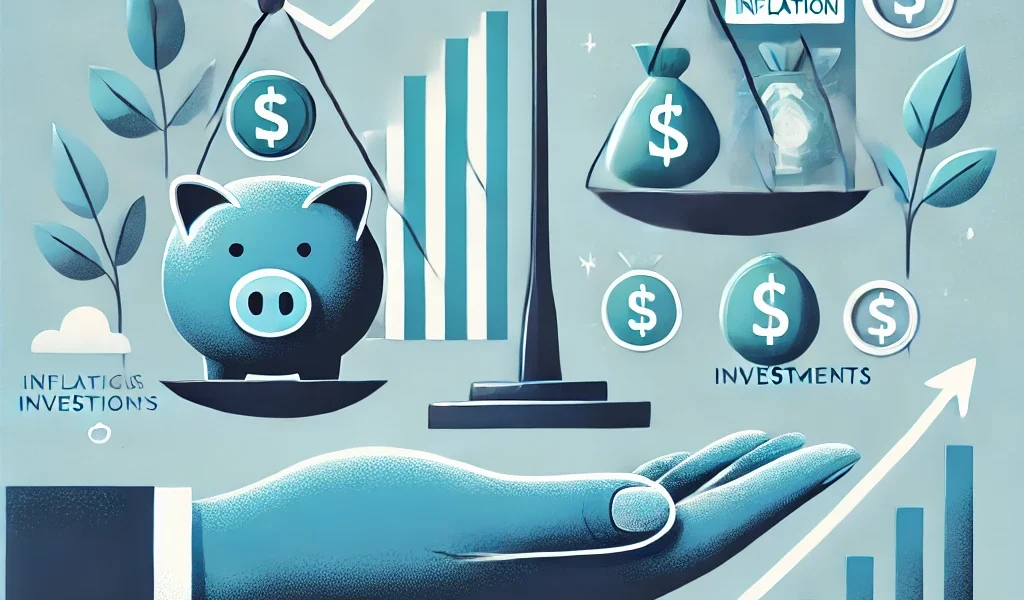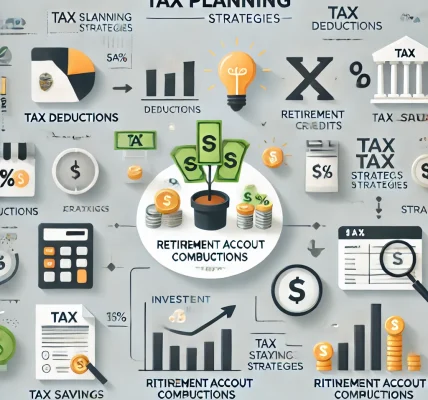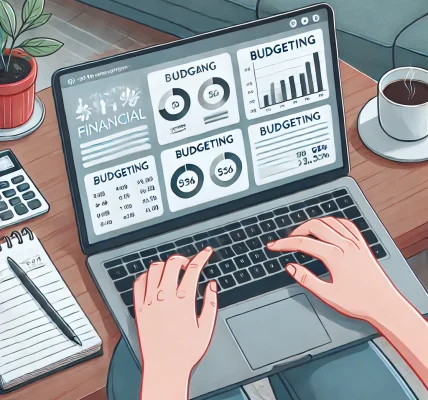Introduction
Inflation is a critical economic concept that affects every aspect of personal finance, from savings to investments. Whether you are planning for retirement, saving for a home, or investing in the stock market, understanding inflation is essential to protect and grow your wealth.
This article will explore what inflation is, how it impacts your financial planning, and strategies to safeguard your savings and investments against its effects.
What Is Inflation?
Inflation is the rate at which the general level of prices for goods and services rises over time. It decreases the purchasing power of money, meaning that a dollar today will buy less in the future than it does now. Central banks, such as the Federal Reserve in the U.S., aim to keep inflation at a moderate level to ensure economic stability.
Types of Inflation
- Demand-Pull Inflation – When demand for goods and services exceeds supply, prices rise.
- Cost-Push Inflation – When the cost of production increases (e.g., higher wages or material costs), businesses pass these costs to consumers.
- Built-In Inflation – When employees expect inflation and demand higher wages, leading to a cycle of rising costs.
How Inflation Is Measured
Governments and financial institutions track inflation through:
- Consumer Price Index (CPI) – Measures the average price of a basket of goods and services.
- Producer Price Index (PPI) – Measures inflation from the perspective of producers.
- Personal Consumption Expenditures (PCE) – A broader measure often used by central banks to set monetary policies.
How Inflation Affects Your Savings
1. Erosion of Purchasing Power
If inflation is 3% annually and your savings earn only 1% in a regular savings account, you are effectively losing 2% of your purchasing power each year.
2. Low-Yield Savings Accounts and Fixed Deposits
Traditional savings accounts and fixed deposits often offer interest rates that are lower than the inflation rate, leading to a gradual loss of wealth in real terms.
3. Impact on Retirement Savings
If inflation remains high, the cost of living in the future could be much higher than anticipated, requiring you to save more to maintain your desired lifestyle.
How Inflation Affects Investments
1. Stock Market Investments
- Stocks historically offer higher returns than inflation, making them a good hedge against rising prices.
- However, inflation can reduce corporate profits if companies cannot pass higher costs to consumers.
2. Bonds and Fixed-Income Securities
- Fixed-income investments, like bonds, are negatively impacted by inflation since they offer fixed returns.
- Inflation-linked bonds, such as Treasury Inflation-Protected Securities (TIPS), can protect against rising inflation.
3. Real Estate
- Property values and rental income generally increase with inflation, making real estate a good long-term investment.
- However, higher interest rates due to inflation can make mortgages more expensive.
4. Precious Metals and Commodities
- Gold and commodities tend to hold value during high inflation periods, serving as a hedge against economic uncertainty.
5. Cryptocurrency and Alternative Assets
- Cryptocurrencies like Bitcoin are often considered an inflation hedge, but they come with high volatility.
- Alternative assets like art, collectibles, and private equity can offer diversification.
Strategies to Protect Your Wealth from Inflation
1. Invest in Inflation-Protected Assets
- Diversify your portfolio with inflation-resistant assets such as stocks, real estate, and commodities.
- Consider TIPS and inflation-adjusted bonds.
2. Increase Your Earnings and Savings Rate
- Look for opportunities to increase your income through career growth, side businesses, or passive income streams.
- Maintain a higher savings rate to offset the impact of inflation.
3. Diversify Investments
- Spread your investments across different asset classes to mitigate risk.
- Invest in international markets to reduce exposure to domestic inflation trends.
4. Monitor Inflation Trends and Adjust Accordingly
- Stay informed about inflation rates and their impact on interest rates and investment returns.
- Adjust your investment strategy based on market conditions.
5. Avoid Keeping Too Much Cash
- While emergency savings are essential, keeping too much money in low-interest accounts can lead to losses due to inflation.
- Invest excess cash into assets that outpace inflation.
6. Consider Dividend Stocks
- Dividend-paying stocks provide a steady income stream and can offer protection against inflation.
- Companies that regularly increase dividends help offset rising living costs.
Conclusion
Inflation is an unavoidable economic factor, but with the right financial strategies, you can protect your savings and investments from its negative effects. By diversifying your investments, investing in inflation-protected assets, and continuously monitoring economic trends, you can secure your financial future against the erosive power of inflation.
Start planning today to ensure that inflation does not diminish the value of your hard-earned money over time!




